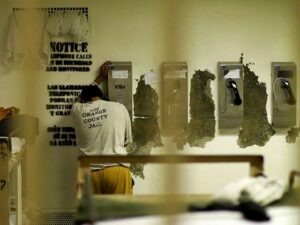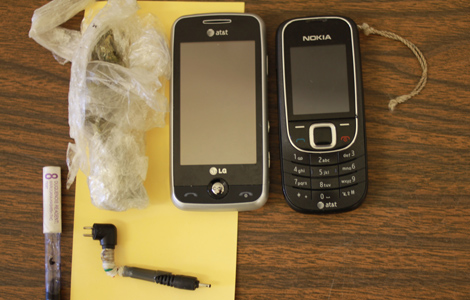 The FCC has frequently advocated for competition in the provision and availability of inmate communications services (ICS) in prisons and jails.
The FCC has frequently advocated for competition in the provision and availability of inmate communications services (ICS) in prisons and jails.
In its Second Report And Order And Third Further Notice Of Proposed Rulemaking (NPRM) adopted on 10/22/15, it wrote, “While we adopt regulations in this Order to correct failures in the ICS market, the Commission generally prefers to rely on competition over regulation. We seek additional comment on whether there are ways to promote competition within the ICS market to enable the Commission to sunset or eliminate our regulations adopted herein in the future. In the 2012 NPRM, the Commission noted that the First Wright Petition asked the Commission to “mandate the opening of the ICS market to competition.”
“In the First Wright Petition, the Petitioners further requested that the Commission address high ICS rates by prohibiting exclusive ICS contracts and collect-call-only restrictions at privately administered prisons, and requiring such facilities to permit multiple long-distance carriers to interconnect with prison telephone systems…The Commission sought comment on whether security issues were still a legitimate reason for limiting competition within correctional facilities, and whether any technological advances had changed the justification for such exclusive use.”
The Human Rights Defense Center (HRDC) commented, “The ICS commission issue also illustrates the fundamental problem with the existing status quo; specifically, the lack of competition in the ICS industry, in which, in exchange for commission payments, local jails and 42 state prison systems provide ICS providers with monopoly phone service contracts.”
The American Bar Association commented, “The ABA recommends that the FCC use its statutory authority under section 253(d) of the Act to preempt states from entering into exclusive provider agreements, and open up the ICS market to fair and widespread competition.”
And the Wright Petitioners wrote, “The FCC correctly notes that the Petitioners have been calling for the introduction of competition in the ICS market for more than 15 years, and in fact, this goal served as the basis for Martha Wright and the Petitioners to file the original lawsuit.”
Some of the solutions put forth to achieve this goal include an “equal access” approach similar to that which was put in place to open up local and long distance services to competition wherein consumers picked their local and long distance providers. Others have suggested a “wholesale/retail” bifurcation of the industry providers.
We believe, like the FCC, ABA, HRDC and the Wright Petitioners, that competition is an essential ingredient in breaking the ICS providers’ monopolies in prisons and jails in order to drive market-based pricing.
However, like the consumer market, unfettered and robust choice is what drives real competition. Completely bypassing the monopolists is the best way to ensure this choice. The consumer telecommunications market, while initially cracked open by regulatory schemes such as equal access, was fully emancipated by the introduction and widespread adoption of cellular phones.
An individual “wireless prison payphone” in the form of a secure cellular service offered to any detainee who wants it, without requiring interconnection to the monopolist’s infrastructure or the forced bifurcation of the industry into wholesale/retail providers, will offer true choice and therefore real competition in an industry that has for so long thrown up barriers to any meaningful competition.
By using commercial cellular networks to bypass the monopolists, no infrastructure, such as WiFi, is required in a facility and therefore there is no capital cost to the prison facility as well as no risk of interconnection hurdles and artificial costs imposed by the incumbent ICS provider.
The current prison payphones already installed will remain in place, thereby giving inmates and their families a choice.
If desired, the inmate can stand in line, waiting for his 15 minute call in a public area on the traditional payphone. Or he can make a wireless call of unlimited length in the relative privacy of his cell.
In this way, real market forces will be introduced into the ICS arena thereby fulfilling the stated goals of the FCC, the ABA, the HDRC and the Wright Petitioners as well as the families of prisoners throughout the United States.
- Multi-Blockchain System for Inmate Forensics - April 2, 2024
- Blockchain to Secure Attorney-Inmate Privacy for Prison Calls - June 28, 2023
- meshDETECT® Announces Grant of Ninth Patent For Blockchain Wireless Services - August 26, 2022




